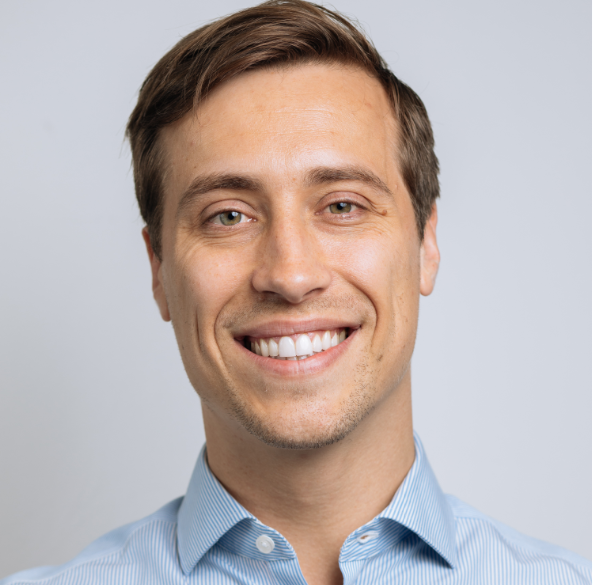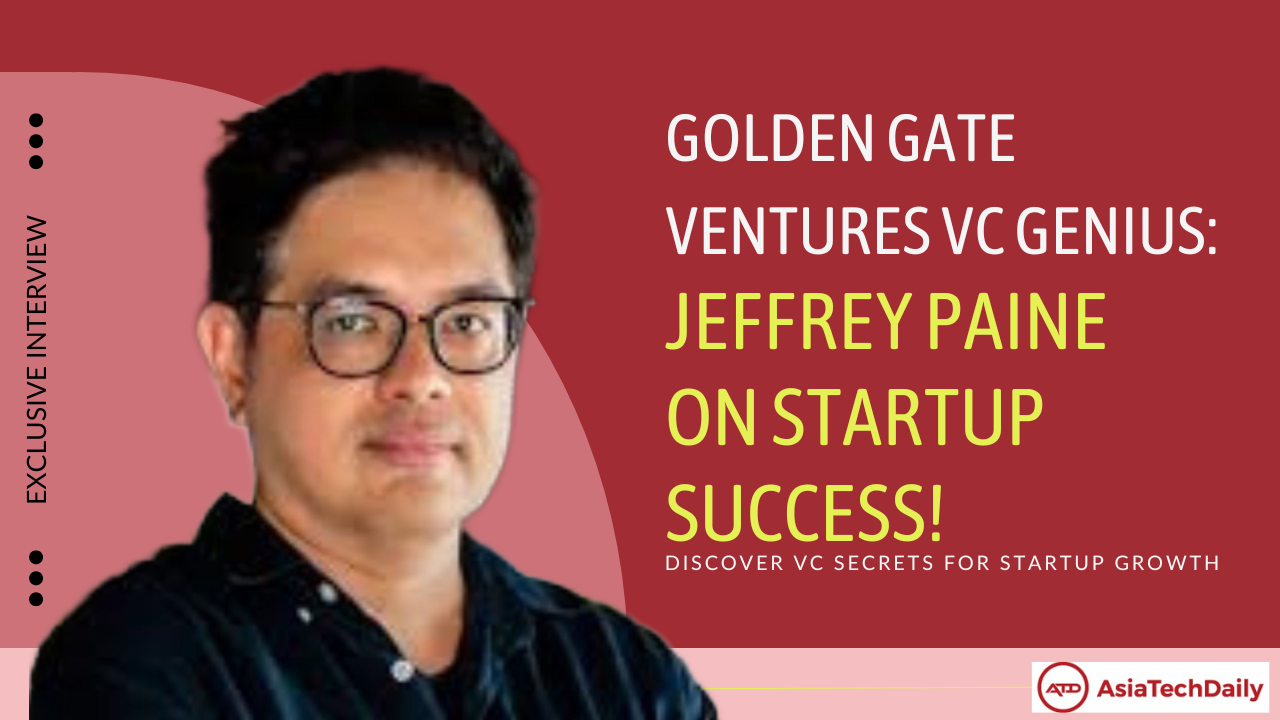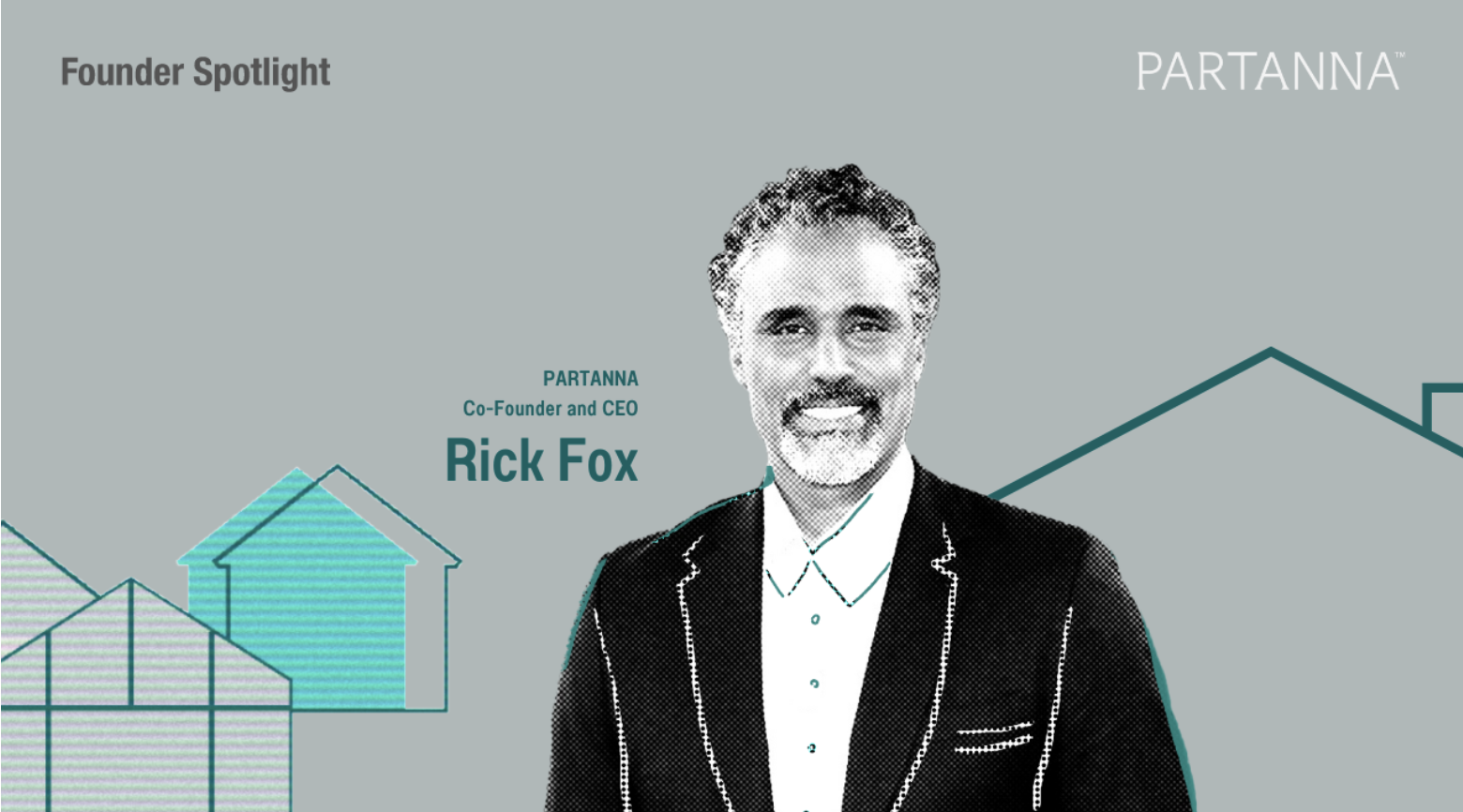AsiaTechDaily – Asia's Leading Tech and Startup Media Platform

How Niels Thoné, CEO Of Sprout.ai Raised $3.2M To Build An AI Powered Fraud Filtering And Claims Automation Platform?
Niels Thoné is Techstars ’19 Alumni. He is the CEO at Sprout.ai; a VC backed Insurtech startup building the most advanced AI claims and fraud solution in the insurance industry by leveraging heterogeneous data collection.
Sprout.ai provides insurance companies with a plug-in SaaS solution to simultaneously improve and scale Fraud detection as well as automate Claims processes. Through the innovative use of AI and machine learning, they can automate the whole claims cycle from fraud detection to settlement, which allows insurers to save up to 20% on operating costs and reduce processing time with 50%.
Niels has 8 years of experience in marketing within Tech and Finance. He has 3 years of startup experience with one acquisition in e-commerce.
In an exclusive interview with AsiaTechDaily, Niels says:
I believe it’s too much too soon – so you spread yourself too thin. Keep in mind that going global means 50+ languages and hiring different native speakers for customer support – which can be a huge drain on resources.
And also putting an MD in the new market instead of leading the efforts yourself.Only be an entrepreneur when you want it. If doing anything else appeals to you as well – rather do that. Because it’s tough, and you have made countless sacrifices along the way – financially and with regard to family and friends.
Read on to know more about Niels Thoné and his journey.
Please tell me about your personal background, and What motivated you to get started with your company?
Niels Thoné:
Education: MSc consumer psychology, MA Management
Professional background: sales and B2B marketing (into finance)
Entrepreneurial journey: 2 previous startups, sold 1, another failed
General: I love solving problems and building businesses around it.
Specific: The claims space was a vast overlooked problem waiting to be solved, and we analyzed both the insurance readiness to address this and innovative as well as the VC industry’s funding focus when starting the business – deeming it the appropriate time to tackle this massive problem (customer readiness + funding availability)
What is your current main product, and can you share any previous product pivot story to the current product?
Niels Thoné: Our current main product: There are 5 modules to our solution:
- Extraction (OCR & NLP)
We developed proprietary and state of the art extraction capabilities, which leverage OCR (optical character recognition) and NLP (natural language processing). We’re the world leader in handwritten OCR at the moment and are in the process of patenting our software.
The extraction happens on the myriad of unstructured documents and data underlying claims, such as PDFs, images, and the free form notes in the claims database. Without access to this ‘dark data’ currently unused by many insurers, you can’t inform the claim and therefore, will experience sizeable time lags on the settlement.
From the extraction phase, we get what we call ‘data sprouts,’ these are all critical data points that allow us to enrich the claim with external data in subsequent stages and contextualize the claim as soon as it hits the claim department.
- Enrichment (Data pipeline)
You can compare the data sprouts to coat hangers to enable us to attach external data points to the claim in real-time to provide much better data capture from the start, verify the customer statement and validate the claim.
We’ve gathered over 50 data categories from the external data’ stratosphere’ in the past 18 months. Examples of data sources include weather, geo-location, medication information, business information, etc. They’re gathered via API networks and by aggregating databases via our web-crawlers.
The data-network is continuously growing by aggregating more databases and websites as well as having global contracts with data providers. As a result, we should hit +150 data categories by 2021, which is unparalleled.
- Policy checking (NLP)
To know whether a claim is valid or not, you always need two checks. One of them is checking whether the claim is covered. For this purpose and on a global client’s request, we’ve developed a proprietary NLP solution that can automatically check for coverage when the claim is made.
The power of our policy checking solution lies in the strength of the NLP algorithms. For example, it can understand policies like an experienced claim handler would, including all the different synonyms for the same word – e.g., septic tank, septic system, sewage disposal, etc. It also understands legal vocabulary since we’ve connected it to various legal and ombudsman databases and can even predict the likelihood of a claims dispute occurring – a potent asset for easy and instant dispute resolution.
- Prediction (DL/ML)
This is where a lot of the magic happens. At this stage, we combine the historical claims data with the enrichments we’ve brought in. The combination of data then gets fed into our deep learning AI algorithms, which then predict the next best step for the claim and pair it with a clear justification (hence the name Contextual AI). The combination of internal and external data proves to be a winner – with a +30% performance increase on the AI’s predictive capabilities. This is a big part of our’ secret sauce’.
The results you’ll experience as a claim handler are that a big bulk of your incoming claims daily will be re-routed to a fast-track since our platform has completely validated them. This means that the handler can now focus on where you’re needed most, the complex claims that require a human touch, and a high level of expertise.
- Continuous guidance & improvement
Sprout.ai’s Contextual AI guides claim handlers through every step of the way with recommendations and justifications. When a new piece of information comes in for the claim, it automatically recalculates and updates the recommendation per claim.
When claims are settled, the system gets that feedback and continuously improves its performance according to the volume of claims that come in.
Pivot: We started out with a private blockchain element to the solution to capture data and scrub it in real-time from various IT legacy systems prevalent in insurance. While it made a lot of sense in theory – it was hard to get this new technology approved by the compliance departments within insurers. So we dropped it and developed an on-premise application installation instead – which has proven to be very popular with our customers.
How much money have you raised in total so far? When was the recent funding round?
Niels Thoné: $3.2M so far
Most recently we concluded a $2.5M funding round in January 2020, led by Amadeus Capital Partners
How have you attracted users, and with what strategy have you grown your company from the start to now?
- Niels Thoné: Users:
Business development: we send out around 300 contact requests per week to our target audience, such as claim directors on Linkedin, and make sure to follow up regularly. We currently have about 1% CVR to the first meeting, so that’s a right level - Podcasts and articles by insurance and general media
- Insurance / insurtech conferences (ITC, etc.)
Which has been the best marketing software tool for the growth of your startup, and why?
Niels Thoné: We haven’t done any active paid marketing so far. We have 1 full-time SDR for lead generation. For email marketing, we use Mailchimp to generate drip marketing campaigns to target users.
What do most startups get wrong about marketing in general?
Niels Thoné: For me, direct sales always trump marketing, as the cost per conversion/lead tends to be lower. I only want to think about paid marketing (SEM, paid articles, sponsorships) when the extra budget is there, as it’s a ‘luxury marketing expense.’
What does tend to work in industry conferences, where you generally pay for a booth. These can get quite pricey – e.g., $7K for a booth. The secret here is to get a good feel for the 1 to 3 conferences globally to work the best and only go to those at the beginning of your journey. Otherwise, it can become quite expensive and a waste of time. Choose your battles.
In terms of getting featured on podcasts and media, we’re very bootstrapped and prefer to reach out directly to build relationships with the journalists than paying. This has worked well for us so far, even though it takes a bit more effort.
What were the internal decision processes in determining when to begin fundraising, and what were the logistics for this? And how many investors have you met so far, and how did you meet these investors and which channels worked best for you?
Niels Thoné: Decision processes:
We decided to fundraise for our pre-seed (circa $600k) because we couldn’t self-fund anymore and needed to switch from our full-time jobs to run the business full-time.
We met VC’s via our university network (Imperial College) and pitched at business angel events
For our seed ($2.5M), we were lucky enough to get offered a term sheet without going out to the market to fundraise. There was enough interest for us to keep it a light touch. Part of this was that we did a Techstars program, which exposes you to a lot of VC’s and gives you a ‘stamp of approval,’ which generates a lot of interest
Investors met so far: easily +100 VC’s, and we get 3-5 new weekly requests.
I currently don’t actively speak with VC’s anymore unless we’re fundraising; otherwise, I would never be able to do my job and just speak to VC’s 24-7. Our Chairman of the board is kind enough to field the first intro conversations with new VC’s that pop up on our radar, and then we add them to our CRM in order to send quarterly updates to keep them in the loop of our traction so that they can gather valuable data points on us over some time. I realize that we’re very fortunate to have this amount of interest, but it’s important to stay focused on execution rather than speaking to VC’s. If you execute well, the interest will always be there. I do make an exception for Tier 1 VC’s, especially when it’s a call with a partner.
What are the biggest challenges and obstacles that you have faced in the process of fundraising? If you had to start over, what would you do differently?
Niels Thoné: The pre-seed round was the most challenging as you’ve just got basically an MVP and concept that still needs to be proven. At this point, everyone with an opinion (even though it might not be founded or grounded in actual knowledge) can give their 2 cents. So at this stage, it’s really about finding experienced VC’s / business angels that believe first and foremost in the team and their ability to execute and persevere.
Fundraising can take a big chunk of your time out of the actual running of the business. So protecting your time is paramount.
Start over: I’d go about it the same way. I believe our approach was quite effective (business angels mainly for pre-seed [with 1 VC]; VC for seed and business angels follow on)
What are your milestones for the next round? And what are your goals for the future?
Niels Thoné: For our series A we’re aiming at $1m ARR and a sales forecast with a view on a triple, triple, double, double, double (interesting article from Battery Ventures: https://www.battery.com/powered/helping-entrepreneurs-triple-triple-double-double-double-to-a-billion-dollar-company/ ). We’re getting close now, so it’s likely that we’ll raise our series A at the back end of 2020.
For the future: within the next 3-5 years, we want to solve the entire claims problem for personal lines insurance and enable every insurance customer to get the service required when they’re at their most vulnerable – i.e., when making a claim. And it’s a very complex one, so it’s an ambitious goal. After that, we aim to prevent claims by enabling insurers to spot risk for the customers in real-time and help them lead a safer life, whether it’s their health, driving habits, or safety.
How do you plan to expand globally?
Niels Thoné: Our current focus is on the EU and the USA. After taking on more capital in 2020-2021, we also plan to expand to Asia. The idea is to be strong in your’ home market’ before moving elsewhere, as these proof points will help you in the new market. Unless a customer from a region you don’t yet cover comes to you. We’re pragmatic and opportunity-driven, first and foremost.
We’re opening our second office in Q4 this year in Europe and are looking to open an office in the USA at the start of Q1 2021. It’s important to have good people on the ground and for the CEO to lead the new market entry, hence the recommendation of strength in your home market as a first step.
What are the most common mistakes companies make with global expansion?
Niels Thoné: I believe it’s too much too soon – so you spread yourself too thin. Keep in mind that going global means 50+ languages and hiring different native speakers for customer support – which can be a huge drain on resources. And also putting an MD in the new market instead of leading the efforts yourself.
How do you handle this COVID-19 outbreak situation for your company’s survival in the future?
Niels Thoné: We were lucky enough to have just raised funds and a solid pipeline of customers and deliveries, so we didn’t have to let anyone go. Quite the opposite, we ramped up hiring and doubled the team size during the past few months.
The key message is to preserve enough runway and try to minimize burn by only having key people work at this time.
What are the most common mistakes founders make when they start a company?
Niels Thoné: I often have friends say that they want to start a company but need ‘THE idea’ first. I don’t believe in that. You start with a half-formed idea, and the only way you get it to resemble a product that has achieved product-market fit is by constantly pitching it to potential customers and iterate/build based on their feedback.
Spending money building a product before they know if the customer needs it / solves their biggest problem.
What’s the best advice you’ve ever received? And What advice do you have for someone who is interested in doing similar things like yours or in a similar direction?
Niels Thoné: Only be an entrepreneur when you want it. If doing anything else appeals to you as well – rather do that. Because it’s tough, and you have made countless sacrifices along the way – financially and with regard to family and friends.
What are the top-three books or movies (TV series) that changed your life and why?
Niels Thoné:
- Steve Jobs’ biography – incredibly inspiring
- Richard Branson – Like a Virgin – first book on entrepreneurship I read when I was 14
- The lean startup – on iterative product building
How do you keep yourself motivated every day?
Niels Thoné:
- My internal drive and passion is to build things, so I’m doing what I love
- When I have a down day I focus on the next tangible goal that we need to achieve and that puts pressure on me, so I go for it
- I’m quite competitive as a person, so I create adversaries in my head that I want to beat in terms of growth such as other startups/companies.
What are the one or two things that you would do differently to improve your life if you could go back to 10 years ago?
Niels Thoné: Go into software earlier
You can follow Niels Thoné here.
Are you looking to secure investment for your startup or a keen startup enthusiast, keep an eye on our interview section.
Follow Asia Tech Daily to know about the innovative startups and how they are revolutionizing the ecosystem.





